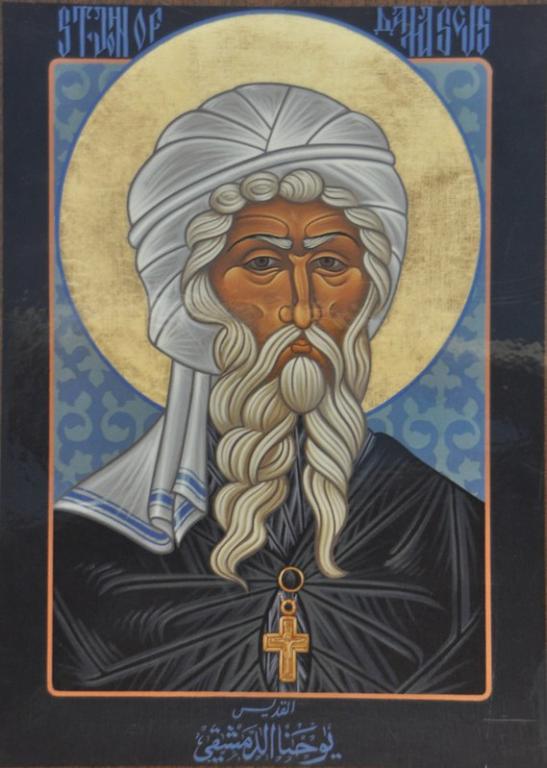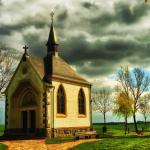
This is the final day of the twelve days of the Christmas season. Tomorrow is Epiphany, which I will address then. Instead of writing about Twelve Drummers Drumming, I want to post another fascinating quotation from a church father about the Incarnation and its implications.
I stumbled upon this at the website of the Lutheran Alliance for Faith, Science, and Technology, an ELCA-related group that I know little about. But an article by George L. Murphy from a few years ago entitled My Nominee for Patron Saint Is. . . caught my eye. In trying to come up with “an appropriate patron for those concerned about relationships between the natural sciences and understanding the implications of Christian faith,” he proposes St. John of Damascus, a.k.a., John Damascene.
This church father, especially important in the Orthodox tradition, used the science of his time regarding heavenly bodies in discussing the orthodox faith and the doctrine of creation. He also defended the use of icons against the iconoclasts. Here is the killer quote:
“I do not worship matter” [John wrote], “I worship the God of matter, who became matter for my sake, and deigned to inhabit matter, who worked out my salvation through matter … I honor all matter besides and venerate it. Through it, filled as it were with divine power and grace, my salvation has come to me.” (St. John Damascene on Holy Images [Thomas Baker and Sons, 1898], 1516.)
Rev. Murphy notes that the “Damascene” is cited in the Formula of Concord (see “The Person of Christ,” Article VIII. paragraph 22, of the Solid Declaration) and quite frequently in the Catalog of Testimonies, the compilation from the church fathers designed to show that Lutheran Christology, which underlies our doctrines of the Sacrament, are in line with the teachings of the early church (see paragraphs 33-40, 97-100, 115-118, 137-146, 161-164).
This also reminds me of what the German theologian Oswald Bayer said of Luther, who turned from “radical denial of the world” as a monk “to an impressive affirmation of everything that is of the world and nature” after understanding the Gospel. Bayer writes (his italics),
“After Luther was thoroughly convinced, because of his new understanding of Word and Sacrament, that the spiritual is constituted in the form of what was earthly—not only negatively but also positively—the spiritual importance of all things earthly was opened to him in a positive sense as well.”
“The spiritual is constituted in the form of what was earthly.” Thus we have the doctrine of the incarnation, the sacraments, and vocation.
Photo of an icon of St. John of Damascus by Ted, via Flickr, CC 2.0














